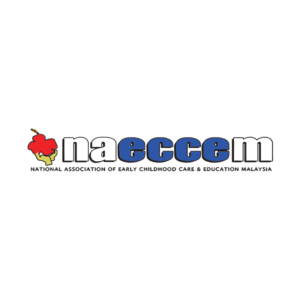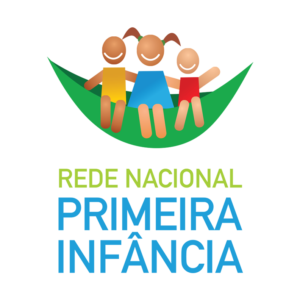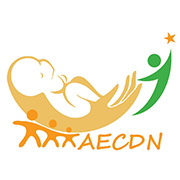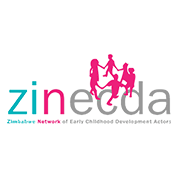International organizations that become World Forum Alliance members are committed to supporting the Foundation’s mission. Organizations in the Alliance provide mutual support for each other’s initiatives.
Early Years Alliance
The Early Years Alliance vision is a society where every child enjoys the opportunity to learn through play. We believe families should be at the centre of policy-making and empowered to become fully involved with their child’s learning and development.
The Early Years Alliance Mission is to support early years providers deliver high quality, affordable and sustainable care and learning to families, and to ensure that all children, regardless of background, are given the best possible start in life.
EYA achieves this by working with Alliance members to champion childhood and children’s right to play, advocate for children, families and all childcare providers, put the family first to enhance children’s life chances, encourage safeguard-led practice, raise standards and quality of childcare, ensure families have choice and information to make the right decision about the childcare they need, and provide high quality training support and advice.
Pikler Lóczy USA
Pikler Lóczy USA (PLUSA) promotes respectful and harmonious relationships between the youngest child and the adult. Inspired by the Pikler® Approach, PLUSA’s mission is to support adults through service, training, and research in the USA and internationally. Their focus preserves the young child’s competence, autonomy, and integrity, as formulated, studied, and practiced by Hungarian pediatrician Emmi Pikler, M.D. (1902-1984), to ensure their well-being in families and in group settings.
Pikler Lóczy USA training provides knowledge to parents, caregivers, and professionals regarding the principles of the Pikler® Approach. PLUSA’s research focus includes new translations of Dr. Pikler’s work, continued in-depth reflection on Pikler’s original documents and videos, and subsequent work produced since Dr. Pikler’s death.
A 501(c)3 Nonprofit Corporation, PLUSA is governed by an all-volunteer service board.
Early Childhood Australia
The Early Childhood Australia (ECA) has been a voice for young children since 1938. We are the peak early childhood advocacy organisation, acting in the interests of young children, their families and those in the early childhood field. ECA advocates to ensure quality, social justice and equity in all issues relating to the education and care of children aged birth to eight years. Our vision: Every young child is thriving and learning. Our role in achieving this vision is to be an effective advocate for young children and a champion for quality outcomes in early childhood education and care. Learn More.
Early Childhood Educators of BC
The ECEBC vision is to envision a society where early childhood educators thrive in a supportive community that values childhood and education.
The ECEBC Mission is to represent the early childhood care and education profession throughout the province. ECEBC provides professional development opportunities, training, and resources for early childhood educators across the province. ECEBC supports early childhood educators to inform the broader community about their work. They are dedicated to building respect for early childhood education and educators.
Since 1969 ECEBC has worked to advance the quality and professionalism of early care and learning. As part of our ethical responsibility to the profession, we strategically commit our time and resources to educating the sector and community by, investigating, and promoting the development of strong public policies and best practices that are based in research and evidence.
National Association of Early Childhood Care & Education Malaysia

NAECCEM is a non-profit and non-governmental organization set up in 1990. It is the umbrella body that promotes the rights, quality early education and well-being of Malaysian children aged 0 to 8 years. It also serves as the focal point for all activities dedicated towards high-quality Early Childhood Care & Education (ECCE) services and professionalism for the operators and practitioners in ECCE industry of Malaysia. This is achieved through networking and collaboration with countries all over the world.
In fulfilling its mission, NAECCEM supports professional trainings, research, practice and policies geared towards the empowerment of children’s holistic growth and development. In addition, it constantly initiates advocacy work at both state and national levels on issues concerning children’s rights and welfare.
For the past two and a half decades, NAECCEM has been actively collaborating with both local and international ECCE agencies and professionals to upgrade the quality and professionalism of the ECCE community in Malaysia. Among the organization’s main efforts include providing competency training while promoting best practices and policy for children.
Canadian Child Care Federation
Canadian Child Care Federation is committed to best practice in early childhood education. An organization about the value of children.
In order to protect and enhance our children, to promote their safety and their healthy growth and development, Canadian Child Care Federation is committed to providing Canadians with the very best in early learning and child care knowledge and best practices. Their tools are research and knowledge dissemination, the creation and nurturing of active networks.
Te Rito Maioha Early Childhood New Zealand
Te Rito Maioha Early Childhood New Zealand (ECNZ) specialises in early childhood teacher education, offering a range of diploma, degree and postgraduate programmes.
ECNZ is one of the largest early childhood teacher education providers in New Zealand, with more than 450 students of all ages and from all walks of life enrolled at any one time. Some of their students are new to ECE and study, while others have been working in ECE for many years.
Te Rito Maioha’s programmes reflect their bicultural kaupapa and the best of local and international ECE research and practice. ECNZ is proud to be one of New Zealand’s top early childhood teacher education providers, having been awarded the highest quality rating by the New Zealand Qualifications Authority (NZQA).
Rede Nacional Primeira Infância (National Early Childhood Network)

National Early Childhood Network is a national articulation of civil society, government, private sector, other networks and multilateral organizations in Brazil working directly or indirectly in promoting and guaranteeing the Early Childhood rights – without ethical, racial, gender, regional, religious, ideological, partisan, economic, sexual orientation discrimination or of any other nature.
Associação de Profissionais de Educação de Infância
APEI is a professional association of childhood education professionals, created in 1981, non-profit and with the status of public utility since 2007. It is an association that aims to promote the professional development of early childhood education professionals, predominantly childhood educators (but also for educational assistants, psychologists, therapists, parents and caregivers, …) through a set of actions developed throughout the territory including the autonomous regions of Madeira and the Azores, discussion of curriculum in early childhood education and quality pedagogical practices.
APEI collaborates with different higher education institutions (universities and polytechnic institutes) responsible for the initial training of early childhood educators, and also with the Ministry of Education, in partnerships on scientific and pedagogical documents on the pedagogical work of educators of childhood and in the definition of national educational policy. It also works closely with other similar professional associations in promoting training that involves early childhood education. While an association has around 4000 members distributed throughout the country (1 in each 4 of the country’s preschool teachers are APEI members), it has the support of the Ministry of Education through two annual detachments (two kindergartens connected to the public network) and she has had two full-time employees in her position for about 20 years. It has two permanent discussion groups (ethics and professional deontology and nursery).
APEI has a very broad set of initiatives that involve a large part of the kindergarten teachers (and other professionals) throughout the country, of which the following can be highlighted:
- Training actions – occur as a rule in the post-employment period and have different modalities and a variable number of hours: actions accredited by the Scientific-Pedagogical Council of Continuous Training; short-term actions accredited by the Pedagogical Commission of the APEI Training Center; non-accredited actions; Fridays and thematic Saturdays.
- Regional Meetings – one-day seminars for educators working with children aged 3 – 6 years
- “Be a Baby” meetings – one-day seminars for educators working with children from 0 to 3 years old
- National Meetings – two-day seminars that always include an international lecturer, on an annual basis In all of these actions, in 2016/2017, some 5000 nursery school professionals were covered, and by 2017/2018, this number is estimated to reach 6,000 in a universe of about 15,000 professionals nationwide. APEI publishes the only magazine in Portugal on childhood education (48 pages in full color), which celebrated its 30 years of existence in 2017 and, every six months, the “Childhood in Europe Today” magazine of 32 pages that integrates a set of ten countries of the European space and that reflects the educational dynamics of these countries in the scope of the education of infancy.
Foundation for the Promotion of Childhood Care and Development
FPCD, a network on Early Childhood Development is an outcome of the World Forum held in Puerto Rico in 2012 where delegates from Nigeria agreed to form a coalition NGO to anchor Early Childhood Development level and related developmental activities for the Country. The realization that the government was relegating ECD to the background made us come together in an effort to advocate with government and development agencies to support ECD in the best interest of the Child and in line with their commitments as signatories to the Convention on the Rights of the Child (1987) and the Education for All (1990), among other Charters and Declarations
The vision of FPCD is that all young cihldren in Nigeria grow up in a safe, healthy and nurturing environment, able to develop and attain their full potential.
The mission of FPCD is to serve as a rallying point for promoting partnership and integration in Early Childhood Development policy implementation and sustainability through advocacy, dissemination of evidence-based knowledge and practices of high standard.
Alliance for Early Childhood Development Nepal
AECDN’s goal is to bring together experts, policy makers and practitioners to explore and promote the holistic development of all young children in Nepal.
The mission of AECDN is to work as a proactive civil society organization that creates opportunities for effective collaboration among relevant stakeholders to promote high-quality early childcare and education.
The vision of AECDN is to make sure all young children in the country grow up in stimulating,
protective and nurturing environment so that they reach their full
potential.
Zimbabwe Network for Early Childhood Development Actors
Zimbabwe Network of Early Childhood Development Actors (ZINECDA) is a national umbrella of Early Childhood Development Organizations working in partnership to influence policies, programmes and practice related to Early Childhood Development (ECD) by sharing information on experiences and generating knowledge and understanding of ECD.
The Network was formed so as to bring together players and actors in Early Childhood Development in Zimbabwe. For a long time decisions on ECD were carried out centrally leaving out other players in different provinces of the country. The formation of ZINECDA came at a pivotal moment as most marginalized areas and organizations can now be part of a vibrant network that gives them equal participation in ECD at a provincial level. Currently, ZINECDA has presence in all the ten provinces of Zimbabwe with an elected committee coordinating ECD activities.
ZINECDA’s goal is to create an enabling environment for strengthening the capacity of members to strategically engage in key Policy and Programme Development processes at all levels to influence the improvement of support for holistic development of all infants and young children.
The vision of ZINECDA is a Zimbabwe where all young children from conception to 8 year old are treasured in such a way that their basic rights are met and their rights to survive and thrive are realized.
The mission of ZINECDA is to ensure that all ZINECDA members work collaboratively to promote multi-sectoral approaches to child development.
ZINECDA’s values respect the uniqueness and rights of every individual child. The child’s wellbeing and interests are at the centre of all ZINECDA does.
National Collaborative Centre for Indigenous Health
The guiding principles of NCCIH are:
- Respect diversity and the unique interests of First Nations, Inuit and Métis peoples..
- Support the inclusion and participation of First Nations, Inuit and Métis peoples in the public health system.
- Incorporate Indigenous knowledge and holistic approaches.
- Encourage collaboration and capacity building.
ZINECDA’s goal is to create an enabling environment for strengthening the capacity of members to strategically engage in key Policy and Programme Development processes at all levels to influence the improvement of support for holistic development of all infants and young children.
The Mandate of NCCIH is to support a renewed public health system in Canada that is inclusive and respectful of First Nations, Inuit and Métis peoples. Using a holistic, co-ordinated and strengths-based approach to health, the NCCIH fosters links between evidence, knowledge, practice and policy while advancing self-determination and Indigenous knowledge in support of optimal health and well-being.
The vision of NCCIH is the optimal health and well-being for First Nations, Inuit and Métis peoples will be achieved through a population health framework addressing structure and policy, and through public health systems that are inclusive and respectful of First Nations, Inuit and Métis peoples. These will advance self-determination over health and well-being, and be strengthened by the cultures and knowledge of First Nations, Inuit and Métis peoples.
The mission of NCCIH is to pursue its vision through knowledge synthesis, translation and exchange and the creation and fostering of linkages among First Nations, Inuit and Métis peoples and communities, stakeholders, the population and public health community, and researchers.
Association of Early Childhood Development in Malawi
The Association of Early Childhood Development in Malawi (AECDM) is a Non-Governmental Organization (NGO) registered under the Trustees Incorporation Act of 1962 chapter five of the laws of Malawi. The organization was established in 1970 as the Association of Preschool Play groups of Malawi (APPM). Its mandate is to promote Early Childhood Development (ECD) in Malawi. In the National policy of Early Childhood Development, AECDM is mandated, in collaboration with MOGCDSW to:
- Conduct trainings for caregivers and ECD trainers;
- Initiate the provision of learning materials;
- Facilitate the registration of ECD Centers;
- Conduct supervision of ECD centers; and
- Develop ECD instruction materials.
It is the first organization to promote and pioneer ECD services in Malawi. The mission of AECDM is to facilitate the provision of physical. Social, emotional, intellectual stimulation, spiritual and moral development of children in the early years (0 to 8) through the training of caregivers, engagement with community leaders connected with childcare, and the establishment and improvement of ECD centers. The association is particularly concerned with vulnerable children including children with special needs.
AECDM has diversified sustainable development activities through lobbying and advocacy to influence policy formulation,implementation, increase in resource allocation for the ECD sector, capacity building for service delivery, inclusive early childhood development as the core bussiness, transition management for children and infant class teachers, economic empowerment activities for women to better care for their children, health and nutrition interventions as well as information sharing.











